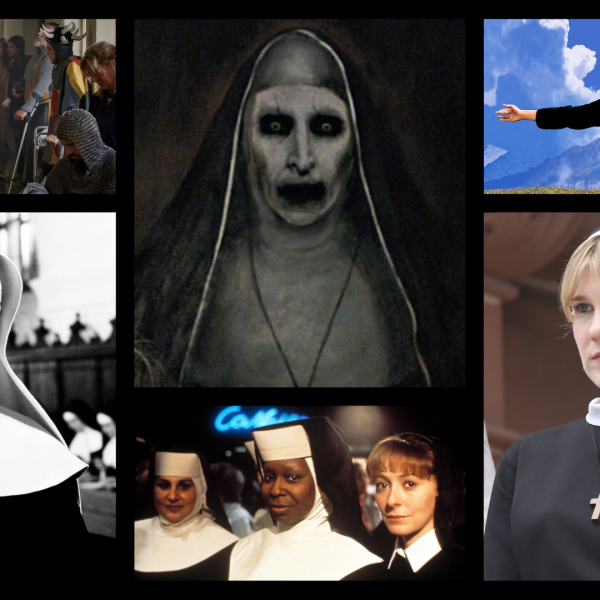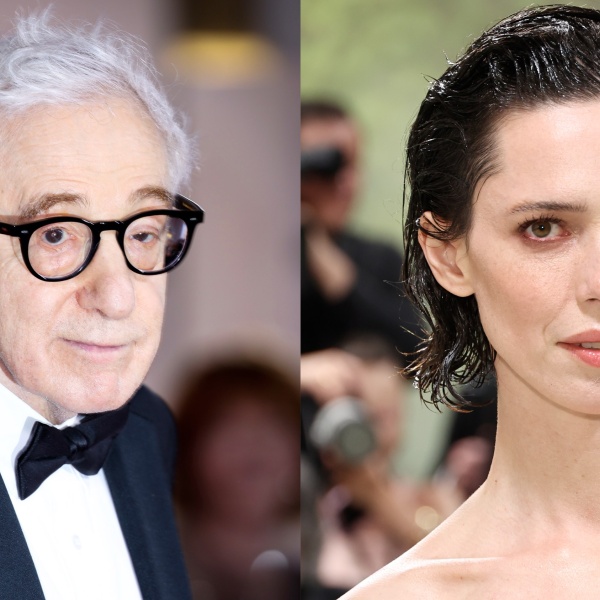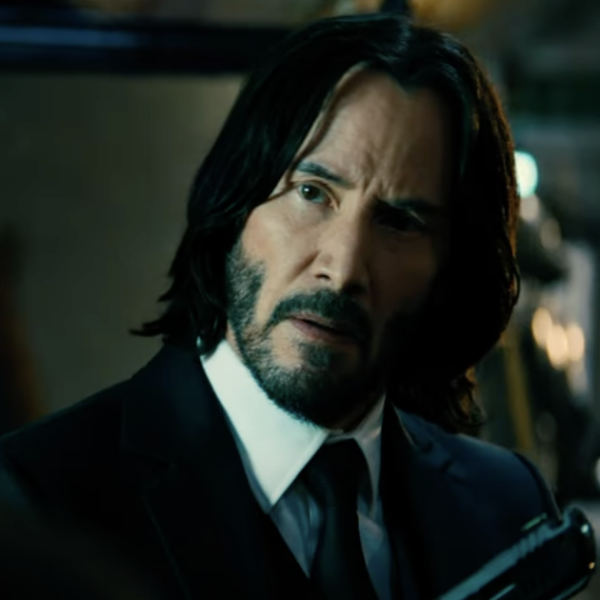And More We Learned From The Director Of The Sundance Award-Winning Romance

The Sundance Grand Jury Prize is traditionally something of a kiss of death for an indie, in terms of gaining a wider audience. Irrespective of the quality of the film, the likes of “Girls Town,” “Sunday,” “Three Seasons,” “Slam,” “Forty Shades of Blue,” “Quinceanera” and “Padre Nuestro” never really set the world alight, did they? But things have changed in recent years, with the last two winners, “Precious” and “Winter’s Bone,” both picking up Best Picture Academy Award nominations, and this year’s victorious movie has just as good a good chance at crossing over to a more mainstream audience
“Like Crazy” is the third film from 28-year-old Drake Doremus, telling the story of a long-distance, Atlantic-spanning relationship between two recent college grads, aspiring furniture designer Jacob and British would-be journalist Anna, and sees the filmmaker working for the first time with established names, the fast-rising stars Anton Yelchin (“Star Trek“) and Felicity Jones (“Cemetery Junction“). The film picked up critical acclaim immediately (read our review from Sundance), ahead of winning the Dramatic Jury Prize in Park City, and Paramount Vantage is finally releasing the film this Friday. We caught up with Doremus and Jones when they were at the film’s European premiere at the BFI London Film Festival a few weeks back. Below, you’ll find highlights from our chat with the director, and you can check back tomorrow for more from the film’s bright young star. Mild spoilers ahead.

1. Doremus based the film closely on his own experiences of a long-distance relationship.
First among the film’s many excellent qualities is its sheer truthfulness; in contrast to most screen romances, there’s nothing contrived or forced here. Doremus told us that this is principally because the film is “pretty largely based on a long-distance relationship I had with a European woman, not British, but she lived here in London for a long part of our relationship. So the L.A. to London, and London to L.A. thing is something I’m really familiar with, that I lived through. So I really wanted to do something honest, what I had been through, and literally serve it up, here’s the truth.”
Indeed, Doremus picked London because he knew the city so well, and the characters go through many of the experiences he had. “I got married,” he told us. “I’m a divorcee. I got married to this woman to try and get her back, I went through the visa stuff, to try and get her back in the States…I’d spent so much time here, visiting someone when I was in a long-distance relationship, so I was so familiar with what it feels like to be jet-lagged, and only be here for 5 days, and try to be romantic, and try to fit in the love, and try to relive what we were going through, while taking in a new city, and being nine hours ahead. That relationship was from 2001 to 2008. she was in the US from 2001-2004, so from 04-08 it was back and forth, four years of long distance.”
2. As an extension of the honest approach, there was never a screenplay, as such for the film, with Yelchin and Jones improvising much of their dialogue.
One of the benefits of making a low-budget two-hander is that don’t need to plan everything down to the last detail, and Doremus told us that no script, in the traditional sense, existed. “We had a 50-page outline, that’s really specific, more specific than most scripts, because it’s got all this backstory in it, and scene objectives, character breakdowns, subtext, plot points, but what it doesn’t have is exact lines of dialogue. It does have some lines, but not that many.” Instead, the actors were free to say whatever felt right. “The lines are found later, once the actors understand where they are emotionally, where they stand and what they say comes by virtue of being fully involved in the character and the moment. That’s the focus.”
3. Yelchin was cast quickly, but Jones landed the part by going above and beyond the call of duty.
While some directors have to go through rounds and rounds of audition to find their young actors, it seems that things were a little easier for Doremus. Anton Yelchin, star of “Star Trek” and “Terminator Salvation,” was cast after only one meeting. “Anton I had met via my producer, I’d always been a fan of his work, so it was a no-brainer to sit down with him. And then I sat down with him, and I loved him,” the director said.
But Jones, less well known in the States, convinced him by going the extra mile when asked to put some scenes on tape. “I talked to her [on the phone] for about an hour, and I asked her to do two scenes for me, so she did two in the living room of her flat. But then she put in a bonus scene, she did the ending of the movie, the shower scene. She framed up a close-up of her face, in her shower, she got her boyfriend to be in front of her. And for five minutes she just emoted, without any dialogue, what Anna’s going through at the end of the film. As soon as I saw it, I was like, there we go.”
4. It’s a good thing that Jones was cast so quickly; she was shooting the film only five days later, after a detailed rehearsal process.
With Jones finally cast opposite Yelchin, things accelerated, the film was rolling within a week. Doremus told us, “She came over immediately, and we rehearsed for five days, and then we were shooting. So Anton and Felicity only met about five days before we started shooting, but we did so many extensive exercises in the rehearsal process, so by the time we started shooting, they had broken up and gotten back together a hundred times. They had been through fights, they’d been through love, it was so immersive.”
5. The movie doesn’t linger on the early stages of the relationship, because that’s how Doremus remembers his own long-distance love.
By the end of the first reel, the young lovers are stuck on different continents, an ocean between them, a bold narrative choice that Doremus says was picked, again, out of a desire to be truthful. “I really wanted it to come up immediately, because when I think about my long distance relationship, the beginning, the falling in love stage, the honeymoon stage, if you will, in my mind, when I think about it nostalgically, is very short, and ethereal, and magical, and simple. And the rest is complicated and long and drawn out, and I remember that. So the film in a way is that, long and drawn-out in that sense, and in the beginning a flash, before your eyes, of intensity.”
6. The film’s budget was only a quarter-of-a-million dollars, and the shoot lasted only a few weeks.
Having now wrapped his follow-up, an untitled drama with a much bigger budget, Doremus really appreciates how little “Like Crazy” was put together for. “[On the new film] we spent on the teamsters, obligation wise, because of the union, more than we did on ‘Like Crazy’ entirely. The budget was $250,000. The whole movie was shot for $250,000.” And as ever, that miniscule budget meant a tight schedule, with the crew having only a week to shoot all over London. “We were everywhere,” Doremus told us. “We shot in Brighton, the train to Brighton, we shot in Trafalgar Square, Camden Market, Hampstead Heath, we shot in Notting Hill, Soho, we were everywhere. We were all over the city, we were here for a week. The whole film was shot in a little under a month, we shot in L.A. for three weeks first, then went to London for a week.”
7. With so little time, and a found aesthetic in place, Doremus shot the film on a commercially available, cheap digital SLR stills camera.
The availability of relatively cheap DSLR cameras that are able to shoot HD video has revolutionized certain quarters of low-budget filmmaking, and Doremus followed in the footsteps of Lena Dunham‘s “Tiny Furniture” in using the technology, making it the most high-profile film so far to do so (although Matthew Libatique used a similar camera for some scenes in “Black Swan“). “We shot on this consumer camera called the 7D, the Canon 7D. It’s a still camera, but it takes videos, and you put film lenses on it, and it looks great. You can buy the camera for $1500.”
It worked particularly well here, as, while the crew had all permits in place, the director was going for a snatched feel in the lensing. “We wanted it to feel like that, guerilla style,” he says. “Whether Anna and Jacob were in a room, having an intimate conversation, or they were at LAX, it’s always stolen, always found, always stealing pieces of their lives. So, yeah, we shot it that way, but everything’s permitted, everything’s planned.”
8. Despite the painful experiences he’s been through, the director remains a romantic.
“Like Crazy” is a pretty tough watch for anyone who’s been through a long-distance relationship, or any kind of break-up; there’s a simple authenticity to that makes it genuinely wrenching in parts. Doremus says of that separation, “I think in a way it erodes what you have, because inevitably people change and they grow, and they learn, and when you do that separately, it’s hard to reconvene. If you grew together, it’d be a part of that fabric, but if you grow while you’re apart, getting back in that zone is very difficult.” Not that it’s soured him on love, if anything, the film’s helped renew his faith in it. “You find love, you lose love, that’s what’s so great about life. Just when you least expect it, something else comes along. I’m excited, I’m a romantic, so I feel more excited than ever about love.”
9. The director believes, having broken out at Sundance, that film festivals are crucial to movies such as “Like Crazy.”
The BFI London Film Festival was only the latest of a series of festival stops for the “Like Crazy” crew, and the first time the film had been shown outside the U.S. Doremus has found that such festivals are the great equalizer for tiny films like his. “I think festivals are essential,” he told us. “So many films that wouldn’t get a chance otherwise. I’ve been on that side of the fence, where I had a film that no one really cared about. But at a festival, the audience is excited, and hungry to see good work. It doesn’t matter if you’ve got George Clooney in your movie or not, people are excited to see your film, and that energy, that vibe, are essential to filmmaking. It spreads like wildfire, if it’s a good movie. The audiences don’t lie. If they like a movie, they like a movie, and they’ll blog about it, and talk about it, and it’ll spread. If they don’t, it won’t, and it’ll die. It’s such a litmus test of truth and worth.”
10. Despite a few studio offers, Doremus has kept to his same technique for his next film, which will be a darker effort.
With the film gathering so much buzz on the festival circuit, with some even tipping it for the Oscars, Doremus is hot property, and he acknowledged that he’s had studio offers, but nothing that’s grabbed his attention yet. “[There’s been] a little bit of attention,” he said, “but nothing great yet. I would love to find the right project and go do that, but I haven’t found that yet.”
Instead, he’s just finished a new film, which sees him reunite with Jones, along with Guy Pearce and Amy Ryan, and keeps to the same rehearsal-heavy, semi-improvised technique, but with a few more bells and whistles. “[It was] the exact same process, just a hell of a lot more money, which is strange. Nine trucks, and a hundred people on set, and I’m like, well ‘I really don’t need any of you people, let’s just make an intimate film with ten of you.’ ” As for the project itself, he describes it as more of a thriller. “We wrapped in the middle of September. It’s coming along great, it’ll be done in spring, and I’m really excited about it. She plays a very different character, it’s a darker cousin to ‘Like Crazy,’ it’s a romantic thriller, so a different genre for me, but something I was excited to try.”
“Like Crazy” goes on limited release from Friday, October 28th, and will hit U.K. theaters on February 3rd. Come back tomorrow for our chat with Felicity Jones.



